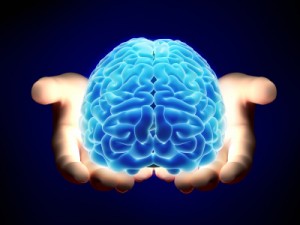 You have probably heard about cognitive abilities or cognition. What is cognition? Cognition has to do with how a person understands and acts in the world. It is a set of abilities, skills or processes that are part of nearly every human action.
You have probably heard about cognitive abilities or cognition. What is cognition? Cognition has to do with how a person understands and acts in the world. It is a set of abilities, skills or processes that are part of nearly every human action.
Cognitive abilities are the brain-based skills we need to carry out any task from the simplest to the most complex. They have more to do with the mechanisms of how we learn, remember, problem-solve, and pay attention rather than with any actual knowledge. Any task can be broken down into the different cognitive skills or functions needed to complete that task successfully. For instance, answering the telephone involves at least: perception (hearing the ring tone), decision taking (answering or not), motor skill (lifting the receiver), language skills (talking and understanding language), social skills (interpreting tone of voice and interacting properly with another human being).
The fields of neuropsychology, cognitive psychology, and thus cognitive training are based on the framework that cognition consists of different mental functions or cognitive abilities which are based on specific constellations of brain structures. For instance memory skills rely mainly on parts of the temporal lobes (next to the temples) and parts of the frontal lobes (behind the forehead).
In the table below, you can browse through the main brain functions involved in cognition. You will also find brain teasers that will help you challenge all the cognitive abilities described: Learn and have fun!
COGNITIVE ABILITIES ARE MENTAL SKILLS
| Cognitive Ability/Brain Function | Skills involved |
| Perception | Recognition and interpretation of sensory stimuli (smell, touch, hearing, etc.) Brain challenges: |
| Attention | Ability to sustain concentration on a particular object, action, or thought. Ability to manage competing demands in our environment.Brain challenges: |
| Memory | Short-term/ working memory (limited storage). Long-term memory (unlimited storage).Brain challenges: |
| Motor | Ability to mobilize our muscles and bodies. Ability to manipulate objects. Brain challenges:
|
| Language | Skills allowing us to translate sounds into words and generate verbal output. Brain challenges: |
| Visual and Spatial Processing | Ability to process incoming visual stimuli.Ability to understand spatial relationship between objects. Ability to visualize images and scenarios. Brain challenges: |
| Executive Functions | Abilities that enable goal-oriented behavior, such as the ability to plan, and execute a goal. These include: Flexibility: the capacity for quickly switching to the appropriate mental mode. Theory of mind: insight into other people’s inner world, their plans, their likes and dislikes. Anticipation: prediction based on pattern recognition. Problem-solving: defining the problem in the right way to then generate solutions and pick the right one. Decision making: the ability to make decisions based on problem-solving, on incomplete information and on emotions (ours and others’). Working Memory: the capacity to hold and manipulate information “on-line” in real time. Emotional self-regulation: the ability to identify and manage one’s own emotions for good performance. Sequencing: the ability to break down complex actions into manageable units and prioritize them in the right order. Inhibition: the ability to withstand distraction, and internal urges. Brain challenges: |
.
COGNITIVE ABILITIES CAN IMPROVE IF EXERCISED
With age, some cognitive abilities decline, especially the executive functions. In addition, cognitive abilities that are not used regularly tend to diminish over time. This may happen at any age but is mostly observed in older age. Fortunately, these skills can also be improved at any age with regular practice.
Further relevant and useful resources:
- An interview with Yaakov Stern, explaining what cognitive reserve is and how cognitive abilities can be improved through lifetime experiences.
- Short posts on what can boost cognitive abilities:

